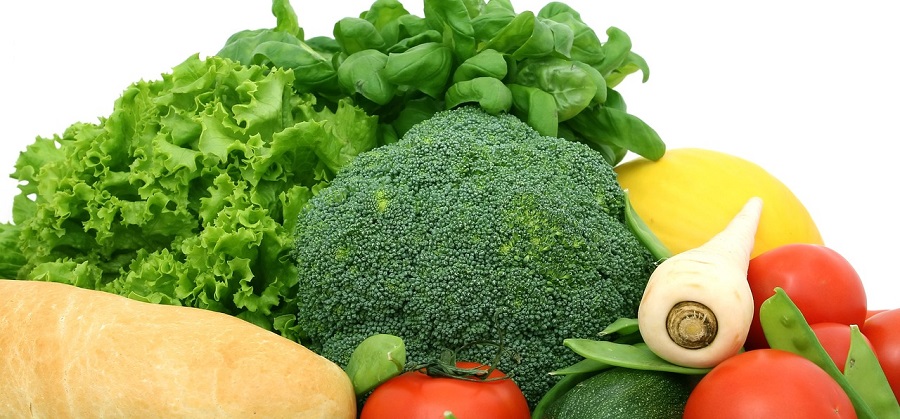Broccoli is a cruciferous vegetable that is a member of the cabbage family. It is a rich source of vitamins and minerals such as Vitamin C, Vitamin K, Vitamin A, folate, potassium and iron. It also contains antioxidants such as sulforaphane and indoles that have been shown to have anti-cancer properties.
In terms of nutritional value, broccoli is low in calories and high in fiber which makes it a great choice for weight management and maintaining a healthy digestive system. It is also known to support the health of the heart and lungs.
When it comes to preparation, steaming or lightly sautéing broccoli is the best way to retain its nutrients. It can also be eaten raw in salads or as a snack. It can be added to a variety of dishes such as pasta, soups, casseroles and stir-fries.
In general, broccoli is considered safe to consume. However, it may interfere with the absorption of thyroid hormone in individuals with hypothyroidism. It's also important to note that broccoli and other cruciferous vegetables should be avoided by people taking blood-thinning medication as it can increase the risk of bleeding.
Overall, broccoli is a nutritious and versatile vegetable that can be enjoyed in many different ways, and it is a great choice for overall good health.
What nutrients are found in broccoli and in what quantities?
Broccoli is a nutrient-dense vegetable that contains a variety of vitamins, minerals, and antioxidants. Here are some of the key nutrients found in broccoli and the approximate amounts per 100 grams:
- Vitamin C: 89.2 mg (about 148% of the daily value)
- Vitamin K: 101.7 mcg (about 84% of the daily value)
- Vitamin A: 441 IU (about 9% of the daily value)
- Folate: 58 mcg (about 15% of the daily value)
- Potassium: 316 mg (about 9% of the daily value)
- Iron: 1.2 mg (about 7% of the daily value)
- Calcium: 47 mg (about 5% of the daily value)
- Vitamin E: 0.6 mg (about 3% of the daily value)
- Vitamin B6: 0.2 mg (about 12% of the daily value)
- Vitamin B2: 0.1 mg (about 6% of the daily value)
- Fiber: 2.6 grams
- Protein: 2.8 grams
- Carbohydrates: 6.64 grams
- Fat: 0.37 grams
It's also worth noting that broccoli is a good source of antioxidants such as sulforaphane and indoles, which have been shown to have anti-cancer properties.
How does broccoli compare to other vegetables in terms of nutritional value?
Broccoli is considered to be a nutrient-dense vegetable, meaning it is high in nutrients and low in calories. It is a good source of vitamins and minerals such as Vitamin C, Vitamin K, Vitamin A, folate, potassium, and iron. It also contains antioxidants such as sulforaphane and indoles that have been shown to have anti-cancer properties.
Compared to other vegetables, broccoli is similar in nutritional value to other cruciferous vegetables like cauliflower, kale, and Brussels sprouts. All of these vegetables are high in Vitamin C, Vitamin K, Vitamin A, and fiber.
However, some vegetables are richer in certain nutrients than broccoli is. For example, sweet potatoes are an excellent source of Vitamin A, and leafy greens such as spinach and Swiss chard are high in iron.
It is good to have a variety of vegetables in your diet, and not only rely on one vegetable to fulfill all the nutritional needs. Eating a rainbow of different colored vegetables can ensure that you're getting a wide range of vitamins, minerals, and other beneficial compounds.
What are some health benefits of consuming broccoli on a regular basis?
Broccoli is a nutrient-dense vegetable that offers a wide range of health benefits when consumed on a regular basis. Here are a few examples:
-
Cancer prevention: Broccoli contains antioxidants such as sulforaphane and indoles that have been shown to have anti-cancer properties. These compounds help to neutralize harmful free radicals in the body, which can damage cells and lead to cancer.
-
Heart health: Broccoli is high in Vitamin K and folate, which are both important for maintaining heart health. Vitamin K helps to prevent the formation of blood clots and folate helps to lower levels of homocysteine, an amino acid that can damage blood vessels.
-
Digestive health: Broccoli is high in fiber, which promotes regular bowel movements and helps to prevent constipation. It also contains prebiotics, which are non-digestible fibers that feed the good bacteria in your gut, promoting a healthy gut microbiome.
-
Bone health: Broccoli is a good source of Vitamin K, which plays a crucial role in bone health. It helps to regulate the activity of osteoclasts, the cells that break down bone tissue, and promote the formation of new bone tissue.
-
Immune system: Broccoli is a good source of Vitamin C, which is an important nutrient for the immune system. Vitamin C helps to boost the production of white blood cells, which help to fight off infections and illnesses.
-
Lowering Inflammation: Broccoli contains compounds called glucosinolates and kaempferol, that have been shown to have anti-inflammatory properties.
It's worth noting that these are just a few examples of the many health benefits of broccoli. Regular consumption of broccoli, along with a balanced diet and healthy lifestyle, can help to promote overall health and well-being.
Can broccoli be a good source of fiber for those on a low-carb diet?
Broccoli can be a good source of fiber for those on a low-carb diet. 100 grams of broccoli contains about 2.6 grams of fiber. Fiber is an important nutrient for maintaining a healthy digestive system and can help to promote feelings of fullness, which can aid in weight management.
Fiber is a carbohydrate that is not digested by the body, so it does not raise blood sugar levels. It is also a great way to add bulk to the diet without adding too many calories.
Broccoli is also a low-carb vegetable and is an excellent choice for those following a low-carb diet such as the ketogenic diet. It contains only 6.64 grams of carbohydrates per 100 grams, which is a low amount compared to other vegetables like potatoes and corn.
It's important to note that a low-carb diet should be individualized, and it's always best to consult a healthcare professional before making any major dietary changes. Incorporating broccoli and other low-carb vegetables into the diet is a good way to increase nutrient intake and promote overall health.
How should broccoli be prepared to retain the most nutrients?
There are several ways to prepare broccoli to retain the most nutrients:
-
Steaming: Steaming broccoli is the best way to retain its nutrients. When broccoli is steamed, it is exposed to heat for a shorter period of time, which preserves more of its vitamins and minerals. Steaming also helps to maintain the bright green color of the broccoli, which is an indicator of its nutritional value.
-
Lightly sautéing: Lightly sautéing broccoli in a small amount of oil is another way to retain its nutrients. This method of preparation allows for the absorption of fat-soluble vitamins like Vitamin A, and it preserves the texture and flavor of the broccoli.
-
Eating raw: Broccoli can also be eaten raw, which is an excellent way to retain its nutrients. It can be added to salads, sandwiches or eaten as a snack.
-
Blanching: Blanching broccoli involves briefly boiling it before immediately cooling it down in cold water. This method helps to preserve the color, texture, and nutritional value of the broccoli.
It's worth noting that while the above methods are the best ways to retain the most nutrients, broccoli can also be boiled, roasted, or grilled. However, these methods can cause some loss of nutrients, particularly Vitamin C. When boiling, it is best to use minimal water and cook the broccoli for a short period of time.
What are some common ways to incorporate broccoli into meals?
There are many different ways to incorporate broccoli into meals. Here are a few examples:
-
Side dish: Steamed or sautéed broccoli is a great side dish to any meal. It can be enjoyed plain or with a variety of seasonings and dressings.
-
Salads: Raw broccoli can be chopped and added to salads for a crunchy texture and added nutrition.
-
Soups and stews: Broccoli can be added to soups and stews for extra flavor and nutrition. It adds a nice texture and works well with a variety of other vegetables and meats.
-
Casseroles: Broccoli can be added to casseroles for extra flavor and nutrition. It's a great way to add some greens to a dish that might otherwise be heavy on the starches and proteins.
-
Stir-fries: Broccoli is a great addition to stir-fries, it's a quick cooking vegetable that holds its texture well, and it's a great way to add some greens to a dish.
-
Pasta and Risottos: Broccoli can be added to pasta dishes such as spaghetti, mac and cheese, and risotto for added nutrition and flavor.
-
Pizza: Broccoli can be added to pizza as a topping, it adds a nice texture and adds some greens to the dish.
-
Omelets and Frittatas: Broccoli can be added to omelets, frittatas, and other egg-based dishes for added nutrition and flavor.
These are just a few examples, broccoli is a versatile vegetable that can be added to many dishes, and it's a great way to add more greens to your diet.


